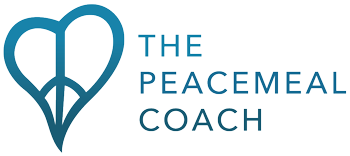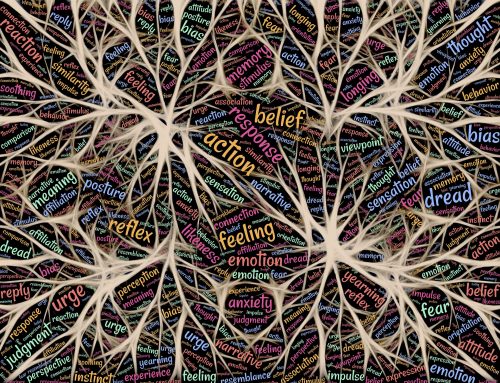“This shouldn’t be happening to my child.”
“Her life wasn’t supposed to go this way.”
“Someone should be able to help her.”
“I shouldn’t have to deal with this.”
All of the above thoughts are common when you are parenting an anorexic teen. On some level, whether we are aware of it or not, many of us have a running thought- loop in our brains that this wasn’t supposed to happen to us. We may not even realize when we are doing it, but we are hurting ourselves by thinking this way.
Anytime we think that something shouldn’t have happened, we are resisting reality. When we think that our teen should not have to go through the experience of having anorexia, we are in resistance.
Resisting something that is causes suffering. The more we resist, the more suffering we experience.
Resistance is pain.
To us, it seems like our teen’s anorexia is causing our pain. In our minds, everything is going wrong. She won’t eat. Her treatment isn’t working. The treatment team isn’t helping her. Her anorexia is too hard to manage. If those are the sentences running through our minds, it will feel as if our teen’s anorexia is causing us to suffer.
In truth, it is our reaction to her anorexia that is causing our suffering.
It is futile to resist something that simply is. Arguing with reality won’t help. The more we resist what is happening, the more entangled in pain we become. Resistance makes things worse than they already are.
So, how do we find our way out of the suffering?
Acceptance. It sounds impossible, but it is the way to process the pain. When we move out of resistance and into acceptance, the result is peace.
Acceptance doesn’t mean that we like the fact that she has anorexia. Acceptance means we acknowledge that she has anorexia.
Acceptance doesn’t mean we stop thinking that our teen’s anorexia shouldn’t have happened. Forcing a new and more positive thought on ourselves when we believe that something shouldn’t have happened won’t help us get to peace. Luckily, the thought doesn’t have to go away for us to feel more peaceful.
Acceptance means allowing ourselves to think our teen’s anorexia shouldn’t have happened, and instead of resisting it, feeling it. When we allow ourselves to process the feelings that come from our thoughts, we can open ourselves up to a new level of awareness. We can learn to watch what we are thinking without getting caught up in it.
When we inadvertently allow anorexia to dictate how we are feeling, we are giving our power away.
We can’t immediately stop thinking this shouldn’t have happened. We shouldn’t immediately substitute a positive thought in its place.
But we can allow ourselves to feel the affect of that thought on us. How does thinking my child shouldn’t have anorexia make you feel? I feel resentful. Notice how you act when you feel that way. I do not act like the loving and compassionate mom that I want to be for my teen.
Instead of being in a hurry to resist it, change it, or avoid it, allow yourself to think this shouldn’t have happened. Let the feeling that thought creates sink in, and notice the sensations you are having. If you can watch yourself as you are thinking that thought, you will learn to separate yourself from the thought enough to notice that it is the thought causing the feeling, not your child’s anorexia causing the feeling.
Why is being able to step back and watch our thoughts such an important skill to learn?
It is so important because it gives us a chance to see that our emotions have nothing to do with our teen’s anorexia. By watching our thoughts instead of resisting them, we get to be at peace. We are in control instead of the anorexia being in control. We take our power back. And, best of all, the more peaceful we are, the calmer our teen becomes.
No resistance.
Become the watcher.
You get to decide how you want to feel and what you want to think about your teen’s anorexia.
You are in charge.
Note: It takes time and practice to learn to become a watcher of your thoughts. I was compelled to write this blogpost because one of the biggest breakthroughs I had while caring for my anorexic teen came when I learned to observe what I was thinking when she exhibited an anorexic behavior. I became able to see what I was thinking without succumbing to the drama, and it changed everything. I was able to move closer to my daughter emotionally instead of immediately feeling fear and adding more anxiety to the situation. I believe this skill is the key to empowering parents to take charge of their teen’s recovery.
If you are stuck in resistance, and you want to learn how to get out, I can help. Schedule a free coaching call with me by clicking the Free Consultation button at the top of my home page or selecting Free Consultation from the drop-down menu.






